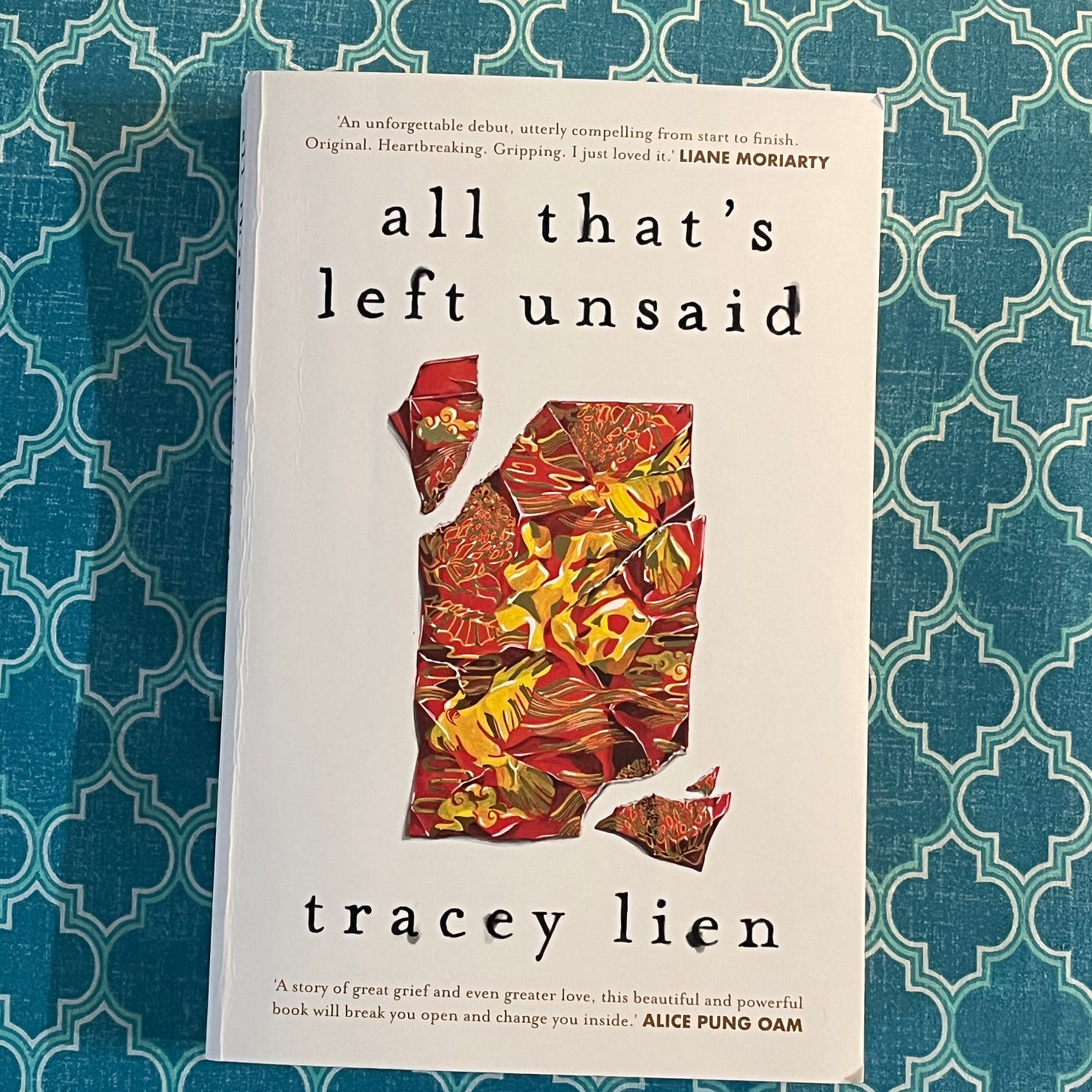ALL THAT'S LEFT UNSAID by Tracey Lien
All That’s Left Unsaid is the debut novel of Australian author Tracey Lien.
All That’s Left Unsaid is the debut novel of Australian author Tracey Lien. The story is that of Ky (pronounced “key”), the daughter of Vietnamese refugees living in 1990s Cabramatta in Sydney’s south-west. In the early 1990s it was known as the heroin capital of Australia and, with a heavily Vietnamese population, also became known for its violent crime relating to the heroin trade.
Ky’s brother, Denny, is murdered after his school formal at a local restaurant, and as was often the case, witnesses to the crime told police that they’d seen nothing and couldn’t help. There’s no doubt that this approach stemmed from a distrust of police in the refugee community - both the police back home in Vietnam and those in Sydney.
This would occur against the backdrop of deep racism directed (at that time particularly) at Asian people, led by the then new member of parliament, Pauline Hanson. That she is still a member of parliament (now a Senator) indicates how far this country has to go in its growing up and embracing of multiculturalism, and the ongoing fight against the white supremacy that permeates through our governments, bureaucracies and social fabric. In 2023, we are better than we were - but we are still terrible.
Ky, now a young journalist, seeks out witnesses to her brother’s death, in order to piece together what happened. In parallel to this, she tells the story of her and Denny’s upbringing, her friendship through school with Minnie, her best friend (until they weren’t) and how her parents’ experience of escaping Vietnam impacted their ability to settle in Australia and raise their children.
As far as debut novel’s go, Lien is a strong writer and the underlying story of migration into a hostile, white country is the strength of this story. It touches on trauma and the way that filters down through generations, and the consequences of the way some refugees chose to live their lives in their adopted homes, compared to others. The message I took from this was that there is no one “right” way to make this adjustment, and that compassion and understanding is essential when we don’t understand the choices others make.
The main storyline (Denny’s murder) - the “whodunnit?” aspect, was, I thought, disappointing. It became obvious to me by the half way mark how that plot line would finish. That is always a bummer when you’re reading a novel. I persevered because I wanted to see if I was right or if there was a twist, but also because the cultural story being told was worth seeing through. However, the major plot premise needed, in my view, to be stronger.
None of this is to say that I wouldn’t happily read LIen’s future work - I would, and I think there are some incredible Vietnamese migrant stories that are worth telling and exploring.
All That’s Left Unsaid was a good debut, showing promise for future novels.



